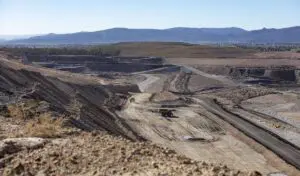As Malcolm Turnbull heads to Turkey to attend this weekend’s G20 Summit in Antalya, a new international report has revealed that Australia is still subsidising fossil fuel production to the tune of a massive $A5.6 billion a year.
The report, ‘Empty promises: G20 subsidies to oil, gas and coal production’, also highlights how Australian companies have received billions of dollars from other G20 governments to develop liquefied natural gas sites.
And it notes that Australia also funds the industry with a further $A292 million ($US262 million) a year in public finance, as it expands fossil fuel production on multiple fronts.

The findings come during a week where the Turnbull is coming under increasing pressure – domestically and internationally – to agree to a OECD proposal that would rein in export credit agency financing for new coal plant.
Although the Turnbull government is being cagey about its response to the proposal, it has been widely reported that Canberra has joined with South Korea to propose a much-watered down version of the US-Japan deal.
Considering the modesty of the OECD proposal – which has been years in the making and needs unanimous support to be adopted – it’s not a good start to global climate negotiations. And it’s not a good look for Australia as it heads to Turkey, and then Paris.
But of course, Australia is not the only offender. According to the new report – put together by the UK-based Overseas Development Institute and USA-based Oil Change International – governments from the Group of 20 nations are propping up fossil fuel production with $US452 billion a year.
This is almost four times the entire global subsidies for renewable energy ($US121 billion).
And it is despite pledges to phase out fossil fuels – and subsidies to the industry – as one of the key measures to prevent catastrophic climate change.
It is also despite warnings that, to keep the world within the 2°C threshold of global warming – which is increasingly looking like it will not be enough to ward of a number of devastating environmental and social consequences – we need to keep three quarters of current fossil fuel reserves in the ground.
“Continuing to fund the fossil fuel industry today is like accelerating towards a wall that we can clearly see,” said Oil Change International director, Stephen Kretzmann. “G20 leaders need to slow down and turn us around before we hit climate disaster.”
Shelagh Whitley, of the Overseas Development Institute, added: “Australia and other G20 countries are paying fossil fuel producers to undermine their own policies on climate change.
“Scrapping these subsidies would rebalance energy markets and allow a level playing field for clean and efficient alternatives.”
Other key findings of the report – which examines three types of G20 government support in 2013 and 2014, including national subsidies extended through direct spending and tax breaks; investment by state-owned enterprises both domestically and internationally; and public finance extended through vehicles such as loans from government-owned banks and financial institutions – were as follows:
– G20 governments provided almost $US78 billion a year in national subsidies for fossil fuel production; G20 state-owned enterprises invested $286 billion, and public finance was estimated to average a further $88 billion a year in 2013 and 2014;
– Japan provided more public finance for fossil fuels in 2013 and 2014 than any other G20 country, averaging $19 billion a year, with $2.8 billion a year in coal finance alone;
– The UK stands out as the only G7 nation significantly ramping up its support for the fossil fuel industry, with even more tax breaks and industry support handed out to companies operating in the North Sea in 2015;
– The US provided more than $20 billion in national subsidies alone, despite calls from President Obama to scrap support to oil, gas and coal;
– Australia and Brazil both provided approximately $US5 billion in national subsidies, including for development of fossil fuel resources in increasingly remote and challenging areas;
– Russia provided almost $23 billion in national subsidies, the highest of all G20 countries
– China’s investment in fossil fuel production at home and abroad, through its state-owned enterprises, far exceeded any other G20 country, amounting to almost $77 billion annually;
– And even Turkey, this year’s G20 host, is giving tax breaks to support its program of building more coal plants than any other OECD country, potentially raising its own greenhouse gas emissions by 94 per cent over the next 15 years.
On a more positive note, the report also found that G20 governments had a tremendous opportunity to meet the climate challenge by shifting the investment of state-owned enterprises away from fossil fuel production toward clean energy.
And at least some countries are looking at the issue seriously. At the end of September 2015, the US and China jointly prioritised the establishment of a concrete deadline for the phase-out of fossil fuel subsidies as a key task during China’s G20 presidency in 2016.
As with the OECD proposal, the real test will be for the leaders of coal producing countries like Australia, who have talked big on climate, but have yet to show much action in terms of reigning in fossil fuels.
As Market Forces lead campaigner, Julien Vincent, put it in a story published here yesterday, “this is where the rubber hits the road on” for Turnbull on climate.
But, he added, “if Australia can’t even support (the OECD) agreement, you have to wonder if anything has changed or if Tony Abbott’s pro-coal ideology still reigns supreme.”










